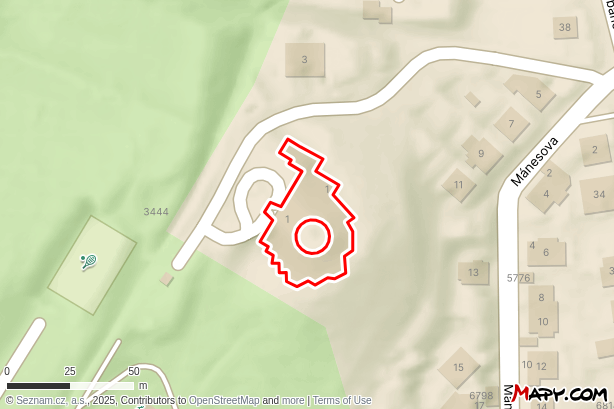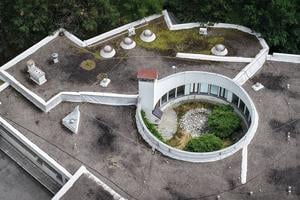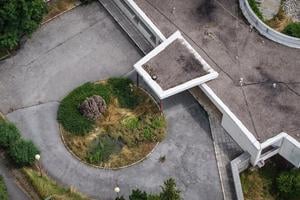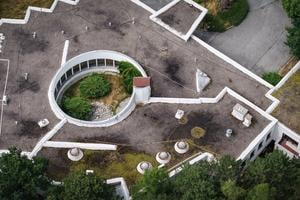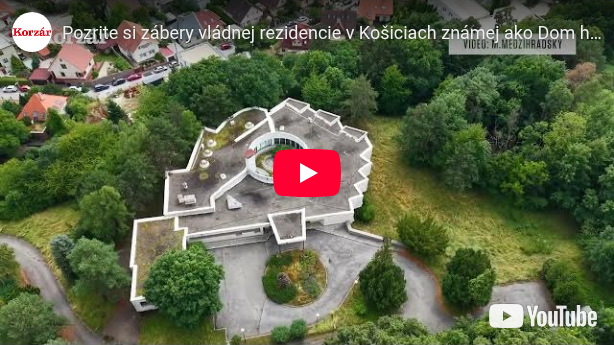In a quiet cul-de-sac in Košice’s Sever district, nestled between a botanical garden and a children’s home, lies a discreet government-owned guest house. Once a retreat for top political figures, the building has stood largely unused in recent years. That may soon change, according to The Slovak Spectator’s partner Korzár.
The Slovak government has announced plans to fully renovate the Košice Guest House (Dom hostí) at an estimated cost of €2.8 million, funded through the national Recovery and Resilience Plan. The residence, located on Mánesova Street, will serve as official accommodation for the prime minister and other senior officials visiting eastern Slovakia.
The project mirrors other major state-funded renovations in the capital, including a deep overhaul of the Government Office at Námestie slobody (Freedom Square) and the historic Karáčoni Palace. Together, these works exceed €11 million.
A building with history – and nicknames
Locally, the Košice Guest House holds a quiet place in the city’s memory. Older residents recall it by its original nickname, “Biely dom” – or the “White House” – due to its bright modernist design. It predates the current Košice city hall, which inherited the nickname after its completion in 1985.
The guest house itself was built in 1973 and repurposed for government use in 1992. It features a circular layout with large glass windows, a central atrium, and a layout that includes a dining room for 50 people, a conference room, bar, wellness facilities, and traditional Slovak furnishings.
There are four guest rooms and three apartments, as well as a gym, jacuzzi, and underground level. The grounds, surrounded by mature trees and fencing, are accessed via a discreet metal gate.
Security and symbolism
The Government Office states the building’s refurbishment is necessary, as it currently fails to meet hygienic and structural standards. The project includes extensive demolition, new insulation, upgraded electrics and plumbing, and a new roof. Architect Ján Katuščák, from Prešov, is leading the design.
Security is a central feature. A new surveillance system will include 31 outdoor night-vision cameras, a modern access gate with a card reader, and 50 contactless ID cards. The upgrade follows heightened concerns after the May 2024 assassination attempt on Prime Minister Robert Fico.
Officials say the residence will provide a secure base for meetings, receptions, and overnight stays for constitutional officials. It is part of the so-called “Lex Assassination” legislative package, which requires the president, prime minister, and parliamentary speaker to reside in buildings meeting strict security standards.
Cost and criticism
Though publicly funded and relatively low-profile, the project has drawn scrutiny. In 2011, under the Iveta Radičová government, the same building was discussed for sale due to high maintenance costs – over €150,000 annually at the time. By 2020, utility costs alone still totalled nearly €10,000.
The first round of public procurement for the renovation has already been cancelled due to inconsistencies in project documentation. A new tender was issued in July, but the contract will not be divided among multiple firms to avoid cost overruns and logistical delays.
Symbol of regional presence
The government argues the investment is justified. “Košice, as Slovakia’s second-largest city, deserves suitable facilities for official events,” the Government Office stated. “The project ensures the state remains visibly present across all regions.”
Plans also include travertine flooring, polished granite fireplaces in a style called Red Africa, a wellness zone, renovated apartments with wooden floors and balconies, and a landscaped courtyard with a sun pergola and pond.
The Košice renovation is one of several simultaneous upgrades of state residences. Nearly €1.8 million is being spent on refurbishing the speaker of parliament’s villa in Bratislava’s upscale Horský Park area. Speaker Richard Raši, originally from Košice, has declined to use it, stating that he is content with a small rented flat.


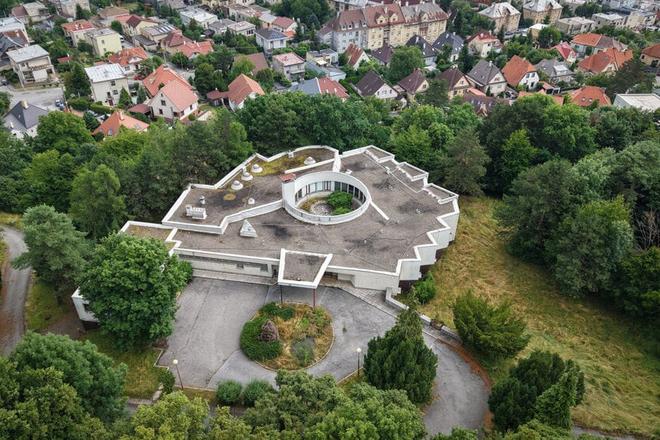 Košice Guest House (source: Korzár/M. Medzihradský)
Košice Guest House (source: Korzár/M. Medzihradský)
